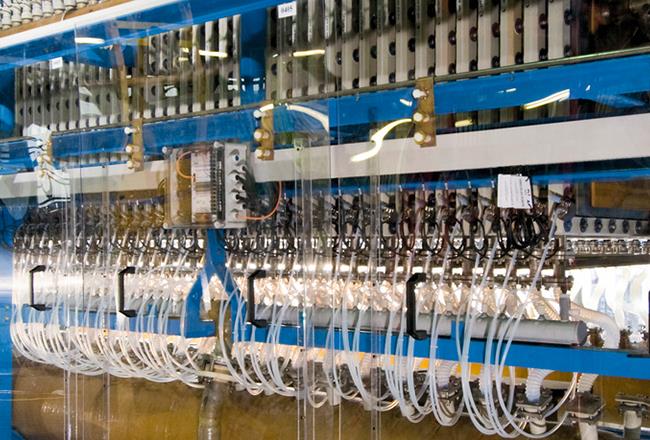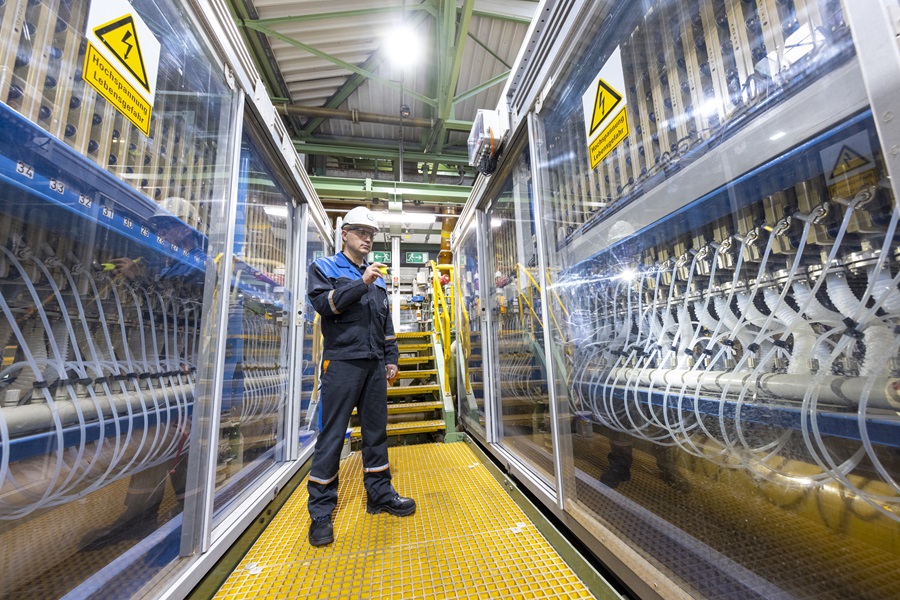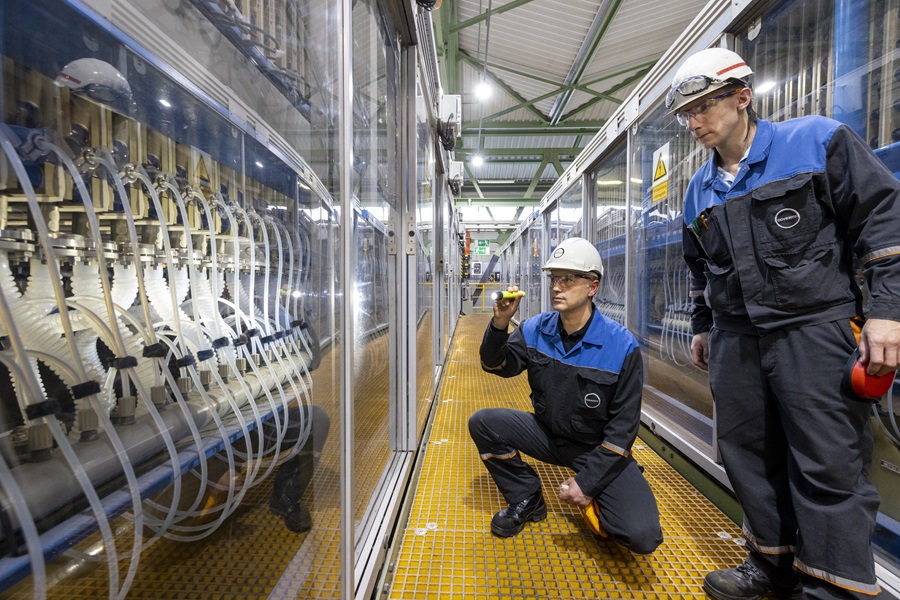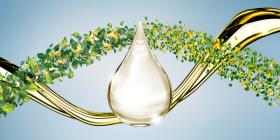
More sustainable basic raw materials with reduced CO₂ footprint
Production of energy intensive basic chemicals is a challenge in achieving climate neutrality
Chlorine, caustic soda (NaOH) and hydrogen are the basic building blocks for many products in the chemical industry. However, their production process is extremely energy intensive.
Our corporate aim is to reach operational climate neutrality for Covestro in the year 2035, so energy intensive basic chemical manufacturing is an important challenge we face. Transitioning our production to electricity from renewable sources is part of this wider climate neutrality development effort, and will be key to solving this issue.

Chlorine, caustic soda and hydrogen are produced with using energy from hydropower based on guarantees of origin
The basic chemical chlorine is produced by electrolyzing a concentrated salt solution of sodium chloride in water. Our partner LANXESS is a producer of chemical products with numerous international and German sites. For its German sites along the Lower Rhine. LANXESS sources chlorine, caustic soda and hydrogen produced in our Leverkusen and Krefeld-Uerdingen production plants.
For this project, we used energy from hydropower based on guarantees of origin to produce one third of the product volume supplied to LANXESS, that is certified according to ISCC PLUS traceability guidelines.
This independent certification of more sustainable basic chemicals brings massive benefits for both Covestro and LANXESS. The ISCC PLUS label reduces our own indirect Scope 2 emissions and the same traceability enables LANXESS to reduce its Scope 3 emissions from indirect emissions in the value chain.
In total, this joint project will bring a reduction of CO2 emissions of up to 120,000 metric tons per year. This represents a significant drop in global warming potential (GWP).
This project, which tackled the highly energy intensive basic chemicals production, marks an important milestone on our journey towards the complete conversion of production to electricity from renewable sources. In turn, a fully electricity mix from renewable sources will be a key enabler for achieving operational climate neutrality for Covestro in 2035. In the meantime, LANXESS and our other basic chemicals customers can benefit from sustainable raw materials with reduced carbon footprint.

Sustainability certification throughout the supply chain: ISCC PLUS
For integrated production processes that bring renewable and circular materials and energy together with fossil-derived feedstocks, the path to increased sustainability is to transparently trace, document and attribute the share of renewable inputs, mirroring the processes that take place along the value chain.
The International Sustainability and Carbon Certification or ISCC is a certification system, which specifies how to document supply chain sustainability for non-transport fuels. It is now emerging as an international and global standard.
ISCC PLUS certifies the traceability and attribution of bio-based, renewable and recycled raw materials and energy sources by tracking them through integrated manufacturing processes that also include fossil-derived materials and fuels.
Several Covestro sites including our chlorine plants in Leverkusen, Krefeld-Uerdingen and Dormagen have earned ISCC PLUS certification, enabling us to deliver customers with high volume products that integrate renewable attributed raw materials and energy inputs.
A particular focus is on the energy intensive production of basic raw materials. In cooperation with LANXESS, we use energy in our electrolysis plants in North Rhine-Westphalia on a pro-rata basis, which enables us to reduce our reported emissions by up to 120,000 metric tons of CO2 per year.
A particular focus is on the energy intensive production of basic raw materials. In cooperation with LANXESS, we use energy in our electrolysis plants in North Rhine-Westphalia on a pro-rata basis, which enables us to reduce our reported emissions by up to 120,000 metric tons of CO₂ per year.
Key Benefits
- Sustainability commitment: More sustainable chemicals help customers reach their sustainability targets.
- Scope 3 reductions: Raw materials made with certified energy from renewable sources reduce Scope 3 emissions.
- Reduced emissions: Energy from renewable sources helps to reduce overall GHG emissions.
- Verifiable: ISCC PLUS allows renewable and circular materials to be certified transparently.
- Traceable: Renewable inputs can be traced in integrated processes.













